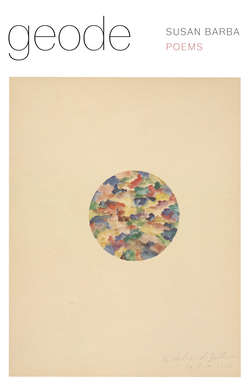Читать книгу geode - Susan Barba - Страница 2
На сайте Литреса книга снята с продажи.
ОглавлениеSusan Barba’s second book, geode, is rich with shining interiors and tactile relationships, delicate human to delicate earth, small delusions of ownership against wider backdrops of loss and time. Poems acting as guides, helping us navigate and remember, create an intricate overlay of worlds, humans and trees.
Naomi Shihab Nye, The New York Times Magazine
With gorgeous incantations, with music that is as memorable as it is piercing, Susan Barba has given us the green-book, the earth-book, the book of justice, that shows us how endlessly, mindlessly “we are ticking away, all of us clocks.”
geode maps our planet’s “blue-green grid,” shows us the earth itself, and our crime against it: “earth the story they’re breaking.” Not a story exactly, perhaps, but a spell, a book of spells.
From the language of maps, from the language of the courtroom, from the language of the river, we are given one human’s testimony. And music, when it comes, is transformative: “Oak, whose girth /exceeds my reach //forever I am /at your feet, / looking up.”
Ilya Kaminsky, author of Deaf Republic
Susan Barba’s geode is a rich, lyrical meditation on earth and its generative forces as well as its vulnerability to human desecration, violence, and ignorance. Her poems navigate places where natural history, human imagination and man-made endeavor meet. Barba’s voice is necessary in this tragic American moment where reactionary forces are at war with science, reason, and the planet.
Peter Balakian, author of Ozone Journal
Tense and bright as a winter star, Susan Barba’s geode re-orients the senses around the sort of spiritual refreshment I thought we had relegated to nostalgia. Now, we need poems that help us survive our trouble and teach us not to lie—Barba’s brilliant “Letter to Gaia” is one of these, confronting us with love and despair in equal measure. Reading this book, we come to know again the lifespan of a river, the perishable joy of children, and the possibility of justice within the law. geode schools us in what the poet might call “prodigal beauty,” delicate reminders in the natural world that life continues in the midst of disintegration. I am amazed and delighted by the energy Barba finds, a liveliness that survives hope and despair, a sense of being that cannot be owned or bought—she has found it, and in this book, she insists on giving it away.
Katie Peterson, author of A Piece of Good News
